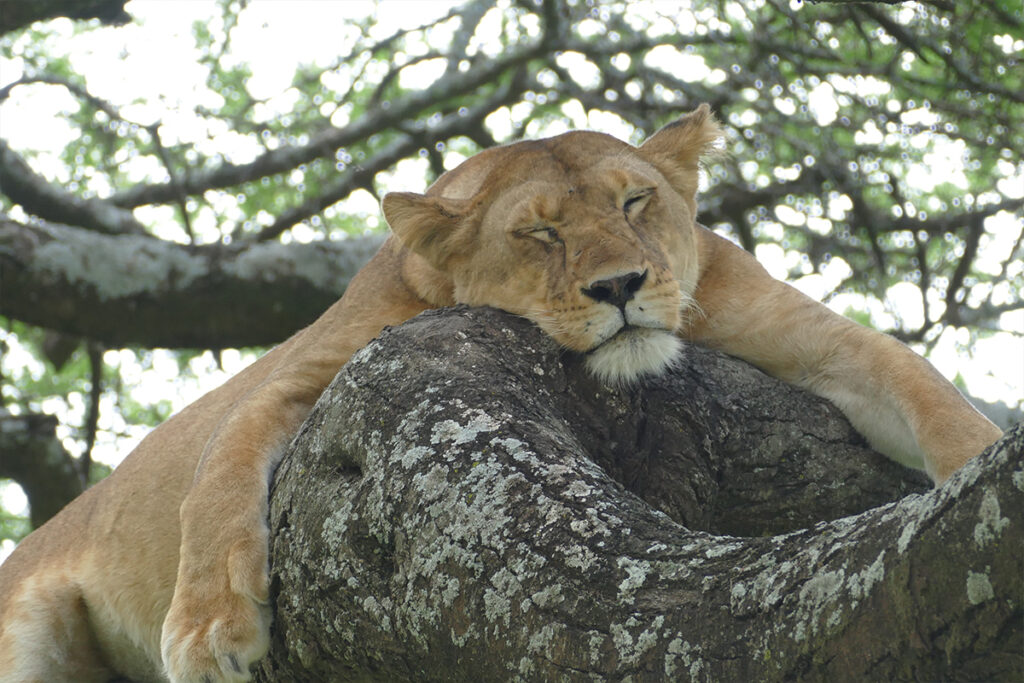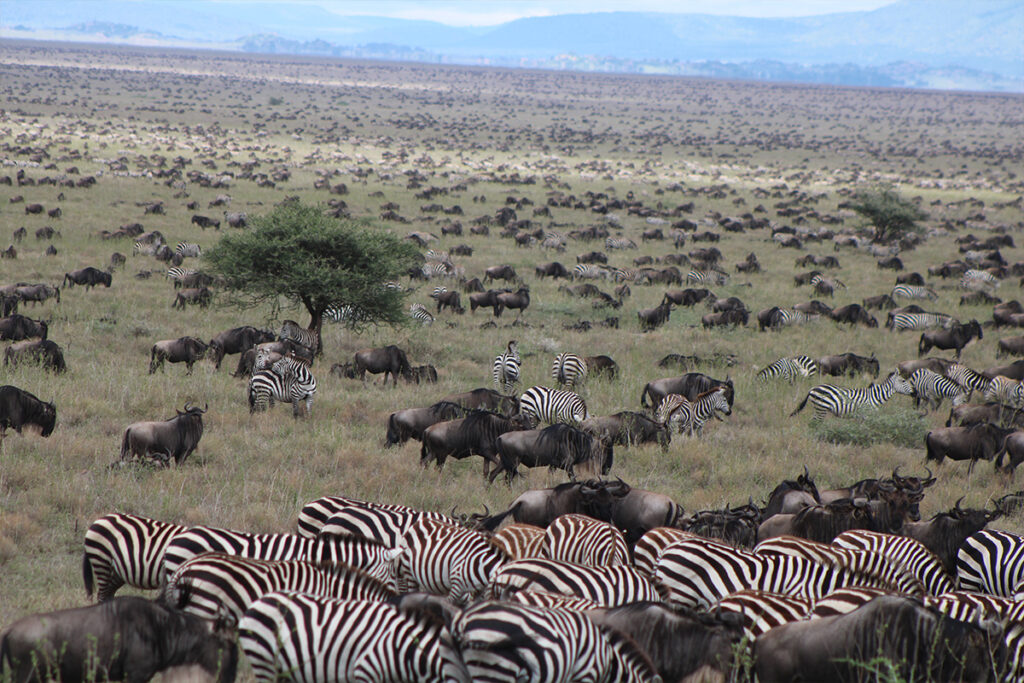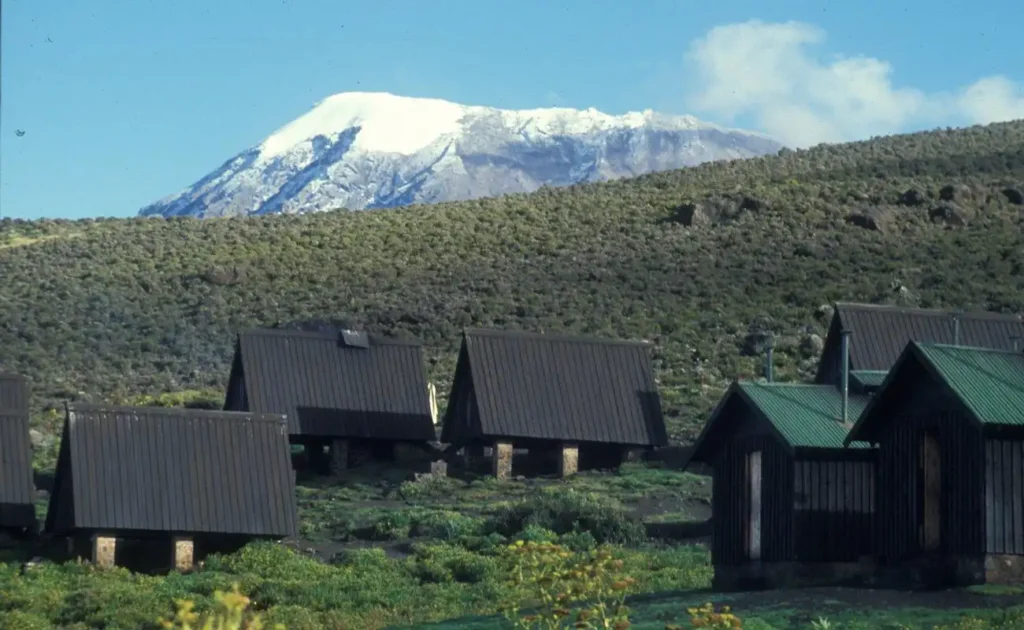Consider that over 25% of Tanzania’s land is dedicated to national parks and conservation areas. This makes it one of the premier destinations for a safari holiday. Such an impressive allocation of space invites unmatched wildlife experiences, where majestic creatures roam freely and landscapes are breathtakingly diverse.
Tanzania’s safari holidays blend rich history and diverse ecosystems. The Serengeti is teeming with the Big Five while the Ngorongoro Crater offers unrivaled natural beauty. Among the 1.3 million annual visitors to these parks, it’s clear these experiences are globally revered, making Tanzania a focal point for wildlife tourism.

Tanzania Safari Holidays: A Synopsis
Tanzania safari holidays offer a unique blend of adventure and tranquility. Whether you’re a nature enthusiast or a curious traveler, the experience is unparalleled. The country’s vast national parks such as Serengeti, known for the Great Migration, provide unforgettable moments. Visitors often see the Big Five in their natural habitats. This makes Tanzania a dream destination for many.
One of the highlights is the variety of landscapes, from savannas to wetlands. Each region hosts a different set of wildlife and ecosystems. According to the article, many travelers regard Tanzania as a must-see for global adventurers. The experience is not just about the animals; the culture and communities add richness to the visit. The people are warm and welcoming, enhancing the overall journey.
There are numerous activities to choose from during Tanzania safari holidays. Apart from game drives, you can enjoy hot air balloon rides over the Serengeti. Nature walks and night safaris also offer incredible wildlife encounters. Bird watching is another popular activity, thanks to the diverse bird species. Many lodges provide guided tours to enhance the experience.
Sustainability is becoming a key focus in Tanzania’s tourism. According to this post, eco-friendly resorts are emerging in places like Zanzibar. These sustainable options help preserve the environment while offering luxury experiences. Travelers are increasingly looking for such options, making Tanzania a pioneer in eco-tourism. This balance of adventure and sustainability is making the country more attractive.
Exploring the Unmatched Wildlife in Tanzania
Tanzania is a paradise for wildlife enthusiasts, offering an overwhelming array of biodiversity. The Serengeti National Park is famed for its Great Migration, where millions of wildebeests and zebras traverse the plains. It’s a spectacle like no other, drawing thousands of tourists each year. The Ngorongoro Crater, another iconic site, provides a unique habitat for many animal species. This diverse wildlife experience makes Tanzania a top choice for safari trips.
The country’s national parks are home to the Big Five: lions, elephants, buffalos, leopards, and rhinoceroses. These majestic creatures are often on travelers’ must-see lists when visiting Tanzania. With professional guides, spotting them becomes an exciting quest. The thrill of seeing a lion pride or an elephant herd up close never gets old. This is why safaris here are so popular.
Bird lovers will revel in Tanzania’s impressive avian diversity. The country boasts over 1,000 bird species, making it a haven for birdwatching. Visitors can catch glimpses of vibrant flamingos, majestic eagles, and colorful bee-eaters. With such a wide range of species, each birdwatching session offers a likelihood of spotting something new. Bringing binoculars is a good idea to get close-up views.
For those seeking sustainability in travel, Tanzania offers multiple eco-friendly safari options. These initiatives aim to preserve wildlife while providing meaningful experiences for tourists. Utilizing eco-friendly lodges and local guides helps protect the environment. This approach not only benefits the animals but also supports local communities. Choosing sustainable options is a rewarding way to enjoy Tanzania’s unmatched wildlife.
The Allure of Tanzania’s National Parks
Tanzania’s national parks are renowned for their stunning beauty and incredible wildlife. Each park offers unique experiences, attracting nature lovers from around the globe. The Serengeti is famous for its breathtaking landscapes and abundant wildlife, making it a top travel destination. Mount Kilimanjaro National Park invites adventurers to conquer Africa’s highest peak. Such diverse attractions highlight why Tanzania is a premier choice for nature enthusiasts.
Beyond the Serengeti, Tarangire National Park stands out with its massive elephant herds and ancient baobab trees. It’s also a prime spot for birdwatching enthusiasts, boasting diverse bird species. Nearby, Lake Manyara National Park dazzles with its stunning scenery and pink-hued flamingos. These parks provide not only visual delights but also enriching ecological insights. Visitors often leave with a greater appreciation for wildlife and conservation efforts.
The local communities surrounding these parks play an essential role in hospitality. Visitors have opportunities to engage with these communities, learning about their way of life. Such interactions often enhance the safari experience, providing cultural context and depth. Guides from these local communities offer invaluable insights and personal stories. This cultural exchange is an integral part of exploring Tanzania’s parks.
For those looking to explore further, the less-crowded Ruaha National Park awaits. It’s Tanzania’s largest park and is a birdwatching paradise with over 570 species recorded. In addition to birds, Ruaha hosts lions, leopards, and rare wild dogs. Its remote location ensures a more intimate experience with wildlife. Choosing to visit these less-visited parks delivers an unforgettable adventure.
Significant Aspects of Tanzania Safari Holidays
Tanzania safari holidays offer some of the most diverse wildlife experiences in the world. You can witness the Great Migration in the Serengeti where millions of wildebeests and zebras move in search of greener pastures. This natural event is one of the most spectacular wildlife shows on Earth. Meanwhile, the Ngorongoro Crater provides a unique microcosm of varied landscapes and abundant wildlife. Such attractions make Tanzania a standout safari destination.
The cultural experience is another significant aspect of these holidays. Visitors can interact with local tribes like the Maasai, who have ancient traditions and knowledge about living harmoniously with nature. These interactions enrich the safari experience, providing depth and context to the landscapes visited. Learning about their ways of life offers meaningful insights. This connection with local communities adds a personal touch to the journey.
Accommodation options in Tanzania vary widely, catering to all types of travelers. Some prefer staying in luxury lodges that offer high-end facilities and services. Others choose eco-friendly camps that focus on sustainability and minimizing environmental impact. There are also budget-friendly options for those looking to experience an authentic adventure without breaking the bank. This variety ensures that every traveler can find something suitable for their needs.
Adventure activities extend beyond traditional game drives. Hot air balloon rides provide panoramic views of the Serengeti, making for unforgettable sunrise moments. Walking safaris offer a closer look at the smaller creatures and plants that are often missed in vehicles. Night safaris are another unique offering, giving insight into nocturnal wildlife. These varied activities add excitement and depth to holiday experiences.
Conservation efforts are a critical aspect of Tanzania’s safari industry. National parks and reserves implement initiatives to protect endangered species and habitats. Tourists often learn about these efforts during their visits, fostering a sense of responsibility. Understanding the challenges faced by conservationists can be eye-opening. These efforts ensure that Tanzania’s natural beauty and biodiversity are preserved for future generations.
The Impact of Tanzania Safari Holidays on Global Wildlife Tourism
Tanzania safari holidays have a significant impact on global wildlife tourism. The country’s rich biodiversity and stunning landscapes attract millions of visitors each year. This influx of tourists not only supports the local economy but also raises global awareness about wildlife conservation. The safaris provide funds that contribute to the preservation of national parks and wildlife. These efforts are vital for maintaining biodiversity.
The success of Tanzania’s safari industry inspires other countries to enhance their wildlife tourism models. Many nations look to Tanzania as a benchmark for sustainable tourism practices. They aim to replicate its success by improving their conservation strategies. This global influence helps create a more focused effort on protecting wildlife across different regions. Thus, Tanzania’s approach serves as an effective template for others.
The exposure given to Tanzania’s wildlife through documentaries and media coverage has a far-reaching effect. These visual stories captivate global audiences, sparking interest in safari experiences. This increased visibility helps generate international support for conservation projects. It also encourages tourists to visit and experience the wonders of Tanzania first-hand. Such media presence significantly boosts the country’s profile in the tourism industry.
Sustainable tourism initiatives in Tanzania play a crucial role in influencing global tourism trends. Efforts like reducing plastic waste, promoting eco-friendly lodges, and involving local communities in tourism are now global standards. Tourists prefer destinations that prioritize environmental responsibility. By leading in sustainable practices, Tanzania sets an example that many countries strive to follow. This has a positive ripple effect on global tourism policies.
The educational aspect of Tanzania safari holidays cannot be underestimated. Visitors often return home with a new appreciation for wildlife and conservation. They become advocates for sustainable travel and share their experiences with others. This word-of-mouth promotion helps spread the message about the importance of wildlife conservation. The educational impact thus extends well beyond Tanzania’s borders.
According to the article, these combined efforts have led to a surge in global wildlife tourism, with Tanzania at the forefront. By continuously improving and sharing their sustainable practices, Tanzania not only enhances its own tourism industry but also contributes to global conservation efforts. This makes their safari holidays not just a trip, but a movement towards sustainable travel. As a result, the entire world benefits from these initiatives.

Frequently Asked Questions
Explore common inquiries that travelers have about safari holidays in Tanzania. These questions and answers provide insightful information to help you plan your safari adventure.
1. What is the best time to visit Tanzania for a safari?
The best time to visit Tanzania for a safari is during the dry season, from late June to October. This period offers excellent wildlife viewing opportunities as animals gather around water sources. The Great Migration in the Serengeti also occurs during this time. It’s wise to book early, as this season is very popular among tourists.
Alternatively, early January to March is ideal if you want to see the wildebeest calving. Baby animals attract predators, making the game drives exciting. However, note that the landscape is greener and can be lush during this period. Different seasons offer unique experiences, so plan according to your interests.
2. What wildlife can I expect to see on a Tanzanian safari?
On a Tanzanian safari, you can expect to encounter the Big Five: lions, leopards, elephants, buffaloes, and rhinoceroses. Serengeti National Park and Ngorongoro Crater are prime locations for spotting these majestic animals. Additionally, the Great Migration features millions of wildebeests and zebras. These spectacles draw wildlife enthusiasts from around the world.
Birdwatchers will be thrilled with the over 1,000 bird species across the country’s national parks. You may see flamingos in Lake Manyara and rare species in Tarangire National Park. Diverse ecosystems support various wildlife, making each safari unique. Don’t forget to bring binoculars for an even better viewing experience.
3. Are Tanzanian safaris suitable for families with children?
Yes, Tanzanian safaris can be suitable for families with children. Many lodges and camps offer family-friendly accommodations and activities. Special programs like junior ranger courses and guided walks keep children engaged. These activities provide educational and fun experiences for kids. However, it’s important to check age restrictions and safety guidelines before booking.
Choosing the right time of year and destination can enhance your family safari experience. Some parks are more accessible and have fewer long drives. This can make the trip more comfortable for young children. Planning with family-friendly operators ensures a memorable adventure for everyone.
4. What should I pack for a safari holiday in Tanzania?
When packing for a Tanzanian safari, prioritize comfort and practicality. Lightweight, breathable clothing in neutral colors is essential. Long sleeves and pants help protect against the sun and mosquito bites. Don’t forget a hat, sunglasses, and sunscreen. A good pair of binoculars and a camera are also important for wildlife viewing.
Consider bringing a small medical kit with necessary medications and first aid supplies. Comfortable walking shoes are a must for guided walks. Layering is key, as temperatures can vary greatly from morning to night. Remember to pack a sense of adventure and a willingness to experience nature.
5. How sustainable are Tanzania’s safari operations?
Sustainability is a growing focus in Tanzania’s safari industry. Many lodges and camps are adopting eco-friendly practices. They aim to minimize their environmental impact through waste reduction and energy conservation. Community-based programs also support local economies. This approach helps to protect natural habitats and wildlife.
Travelers can contribute by choosing eco-friendly operators and following responsible tourism guidelines. Efforts like reducing plastic use and supporting conservation projects make a big difference. According to the article, sustainable safari options are gaining popularity. This positive trend supports both the environment and local communities, ensuring future generations can enjoy these natural wonders.



